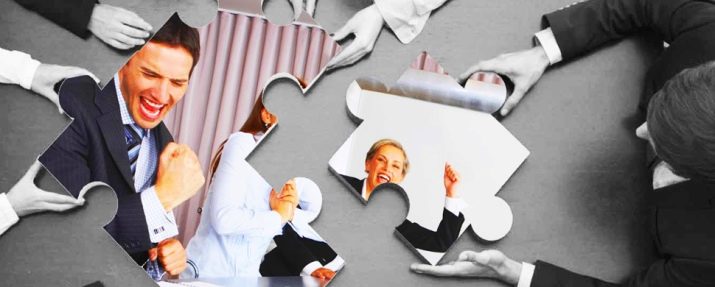Who is a mediator and who can become one?

The profession of a mediator is not very well known in Russia, although the development of this field of activity in the near future will have great prospects. You can professionally deal with the resolution of conflicts, having reached a certain age, having received any higher education and simply having completed a specialist training program.

Who is that?
A mediator is a person who helps the opposing parties understand how to resolve social conflicts, for example, during divorce. This specialist has the right to carry out activities in accordance with the Federal Law of the Russian Federation "On an alternative procedure for resolving disputes with the participation of a mediator." Its main difference from a lawyer is that the mediator does not take anyone's side and does not represent anyone's interests. We can say that a conflict expert is a judge who does not have judicial power. That is why the mediation procedure is often chosen as an alternative to court proceedings, although it can also be used as an addition.
The disputing parties shall jointly choose a mediator-specialist... As a rule, this work is undertaken either by lawyers or persons with a higher legal education who are able to help clients find a mutually beneficial solution without breaking the law. However, the mediator is not required to have expert knowledge of the subject matter that is the cause of the dispute. If necessary, if both parties agree, several mediators can take part in resolving one conflict.

The specificity of a conflictologist's activities lies in the fact that he alternately meets with each of the parties, and then conducts joint negotiations, trying to resolve the issue within two to six months.
A mediator, like a lawyer, has no right to disclose information about his clients and procedures. The professional secrecy rules should cover the following aspects:
- the fact of referring to the mediation procedure;
- all documents;
- information received;
- found out information;
- the terms of the agreement on the mediation itself, including monetary settlements.
Mediation touches upon various social aspects of human life. For example, such an employee may work in a school or a healthcare organization, focus on solving only housing issues, or be part of a large corporation, dealing with the settlement of differences within the workforce. It happens that a conflictologist specializes only in the relationship of children and grandchildren with elderly relatives or decides on the death of doctors' patients.

Pros and cons of the profession
The benefits of being a mediator include free work schedule and no connection to the office. The in-demand specialist is a highly paid employee who, in the process of work, also forges a large number of connections, which in the future can play a decisive role in other areas of his life. It is worth adding that the mediator is more likely to establish communication between the parties, rather than resolve their dispute, and this is less stressful. Nevertheless, this profession also has a number of disadvantages. In the event that, thanks to the actions of the mediator, the clients have suffered any damage, it will be the conflictologist who will have to compensate for the losses.
It is quite difficult for non-professional specialists to compete with professionals, since mediators who have not undergone additional program training cannot be advertised in the media. In principle, it can be difficult for a conflict resolution professional to find new clients. Many people in Russia do not yet understand the meaning of mediation and immediately go to court instead of initiating a mediation procedure.
The career prospects of a negotiator do not look particularly attractive either - in fact, for now, a conflictologist can only grow up to the head of a specialized organization or SRO of mediators.

What does he do?
The duties of a mediator include clarification of the causes and prerequisites of the conflict, its independent assessment and perception of the points of view of both parties... Further, the specialist does the following: establishes communications between the opposing parties in order to inform about the interests and logic of the opponent. An important function is mediation in establishing mutually beneficial rules for communication between the parties and maintaining contact. The professional must keep the participants in constructive negotiations, creating a welcoming atmosphere and discouraging manipulation, threats and pressure. Finally, the conflict expert helps the disputants to jointly work out the final agreement.
During the solution of work tasks, the mediator must be guided by the National Organization of Mediators' Code of Professional Ethics. It is necessary for the conflict resolution specialist to bring the opposing parties to a mutually beneficial solution in 180 days, and in the case when the case is transferred from the court, in 60 days.
A professional mediator should be in a constant process of improving his knowledge and skills in the field of mediation and the negotiation process. It will be a big plus if the specialist continues to develop in psychology and legal process. In the event that a conflict expert decides to specialize in a specific field of activity, for example, economics or healthcare, he will have to delve into these processes.In general, a mediator should only get down to business when he is confident that his skills will be sufficient for a successful negotiation process.
During the procedure, the conflictologist should suspend mediation if he realizes that the parties do not seek to agree and only imitate this readiness.
Since this specialist must remain neutral in relation to the parties to the conflict, in the event that he cannot do this, he should abandon the process.

Requirements
Any person who has reached the age of majority, has full legal capacity and has not previously been convicted can become a non-professional mediator. The standards for a professional mediator are somewhat higher:
- it must be a person who has reached the age of twenty-five;
- a professional mediator must have any higher education, as well as additionally undergo training under the mediator training program.
Personal qualities
A good mediator gets along well with people, because it is in establishing communication that the meaning of his profession lies. This specialist is a good listener, able to understand the essence of the problem from the very first words. He must be persuasive, and also remain tolerant of the client's position, even if it does not correspond to his ideas about fairness.... Of course, qualities such as calmness and concentration, the ability to maintain self-control and personal dignity are important for the mediator. It is important that the conflict expert has a culture of speech, observes the rules of behavior in society and a proper appearance.
The advantage of a professional mediator is his readiness to support the professional community and raise the level of business culture in Russia.
The specialist respects the views on life and values of both his colleagues and clients, and also does not allow any discrimination.

Professional skills
It is not the mediator's competence to resolve specific issues, but to establish communications between the parties, therefore there are no requirements for the basic specialty. The professional skills necessary for a conflictologist include:
- the use of psychological techniques;
- the ability to negotiate;
- understanding of legal aspects.
Everything else that is required from the mediator, he will be able to study, passing a specialized training program for specialists. For example, it will focus on the technique of mediation procedures.

Rights
Mediators may engage in other activities besides mediation, but they are not entitled to hold municipal or public office... As part of the work, the specialist is prohibited from representing only one party, providing legal assistance to her or conducting individual consultations. In addition, the conflictologist is prohibited from participating in those procedures that are of direct or indirect interest to him. For example, such a ban comes into effect if the mediator turns out to be a relative of one of the clients. We must not forget that the mediator is prohibited from making public statements about the dispute without the consent of both parties.
A conflictologist has no right to commit actions that may damage the honor and dignity of the profession. He should not mislead his clients, as well as show an inhuman attitude. In addition, the mediator is prohibited from using information received from clients for personal purposes or for the purposes of third parties.

Career and salary
A professional mediator can either conduct the procedures privately or work in companies that specialize in the provision of mediation services. It is also possible for a specialist to take his place on a permanent basis in a non-core organization - a school or a hospital, where his main responsibility is to help resolve conflicts.How much a specialist earns for one mediation procedure is determined privately by agreement with clients. At the moment, the average salary in Russia varies from 25 to 80 thousand rubles. In Moscow, this parameter increases to the range of 80-125 thousand rubles. In principle, in developed regions, a mediator can receive about 30 thousand rubles for one procedure. Professional conflict resolution mediators earn at the level of lawyers.
A non-professional mediator does not have the opportunity to build a career, since they are prohibited from working in mediation companies. However, professional mediators can grow within their own organization up to the head of the enterprise. Since a qualified mediator is also a good psychologist, many of them decide to retrain in a neighboring field of activity. Conflict experts who specialize in resolving disputes in the economic sphere have particular prospects.
In the near future, the development of this area is forecasted in Russia, which means that there will be more career prospects for such specialists.

How to become a mediator?
In Russia, it is worth studying according to a special training program for mediators only in those cases when a specialist plans to do this on a professional basis. Before that, however, you still have to get a higher education diploma, ideally - psychologist or lawyer. No special education is required for lay mediators. The specialty "Mediation" itself is absent both in higher educational institutions and in secondary specialized educational institutions. It will be possible to pass the required training only in special courses organized at educational institutions in large cities. For example, many specialists are educated at the Moscow Scientific and Methodological Center for Mediation and Law. To obtain a basic level in this institution, you will have to spend 256 hours and 45 thousand rubles.
Good reviews are left by graduates of the Institute for the Development of Continuing Professional Education. At the Department of Mediation and Law, you can take a basic training course, the cost of which is 30 thousand rubles. The training lasts for a relatively short time - 120 hours. Other suitable educational institutions include courses at the Professional Psychotherapeutic League, the Mediation Center at Moscow State Law Academy, and the Academy of Continuing Professional Education. Distance education can be obtained at the International Academy of Expertise and Evaluation.









